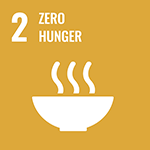Development of Innovative Climate Resilient Technologies for Monitoring and Controlling of Water Use Efficiency and Impact of Salinization on Crop Productivity and Livelihood in Aral Sea Region
Environment / Energy (Global-scale environmental issues)
 Republic of Uzbekistan
Republic of Uzbekistan
Principal Investigator


Director, Xabibullaev Baxitjan Sagidullaevich
International Innovation Center for Aral Sea Basin (IICAS) under the President of the Republic of Uzbekistan
ODA Recipient Country
Republic of Uzbekistan
Research Institutions in Japan
Kyoto University / Kobe University / Chiba University / Mie University / The University of Kitakyushu/Tottori University
Research Institutions in Counterpart Country
International Innovation Center for Aral Sea Basin / Uzbek Hydrometeorology Institute / Tashkent Institute of Irrigation and Agricultural Mechanization Engineers / National University of Uzbekistan / Uzbek Design Research Institute / Nukus Branch of Tashkent Agrarian University
Adoption fiscal year
FY 2020
Research Period
5 Years
Overview of the Research Project
Selection of crops for circular halophytes mixed farming (CHMF) and utilization of real-time data Years of irrigation-based agriculture have shrunk the Aral Sea, and salt damage and drought are becoming increasingly severe in the surrounding area. This project is designed to use climate data and information from earth observation satellites to grasp conditions in the area around the Aral Sea: the amount of usable water resources, the amount of evapotranspiration, and the status of crop growth. In addition, we will work to prevent the worsening of salinity problems by developing a sustainable agricultural model that combines appropriate irrigation drainage management methods, halophyte-based biological restoration of saline soil, and cultivation of crop species that use water efficiently.
Development of a circular business model for managing agricultural land, water, and salt We will explore and propose optimal combinations of crop species from the standpoints of resistance to drought and salt, ability to remove salt from soil, and efficient use of water, in order to realize resource-efficient, sustainable agriculture through irrigation and drainage management based on the amount of water resources available, the amount of evapotranspiration taking place and the status of crop growth, and through active cultivation of halophytes in salinity-affected areas.
Photo gallery
Research Project Web site
Press Release
Links
Projects
Contact Us
Japan Science and Technology Agency (JST)
Department of International Affairs
SATREPS Group
TEL : +81-3-5214-8085
Related articles by Category
- Global-scale environmental issues
Environment / Energy
(Global-scale environmental issues)
 Republic of Kazakhstan
Republic of Kazakhstan
Aim for zero pollution by digitizing mines with “Smart Mining Plus”!
Next-generation Smart Mining Plus for Sustainable Resources Development
- Uzbekistan
Environment / Energy
(Carbon Neutrality)
 Republic of Uzbekistan
Republic of Uzbekistan
Establishing hydrogen production technologies that fully utilize everything from solar power to underground resources!
Development of Innovative Technologies for Efficient Generation of Green/Blue Hydrogen for Realization of Carbon-neutral Society with Consideration of Industrial and Environmental Characteristics in the Region
- Europe
Environment / Energy
(Global-scale environmental issues)
 Kyrgyz Republic
Kyrgyz Republic
Assessing air pollution throughout the Kyrgyz Republic using satellites and regional chemical transport modeling
Development of a Satellite Data and a Regional Chemical Transport Modeling-based Air Pollution Assessment System and Formation of a Research Center for Air Pollution Studies
- SDGs : Goal.2
Bioresources
 Republic of Uganda
Republic of Uganda
Development and Promotion of Sustainable Perennial Rice Production System Using Multiple Crop Harvesting Technologies


























